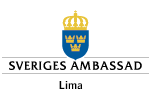 Office of Peruvian economist Hernando de Soto responds to Egyptian op-ed, defends benefits of formalisation in developing economies like Egypt
Office of Peruvian economist Hernando de Soto responds to Egyptian op-ed, defends benefits of formalisation in developing economies like Egypt
25 June 2014 - In an article published in El Shorouk on 3 June, 2014, Mr. Galal Ameen argues that the formalisation programs for Egypt championed by Hernando de Soto and the think tank he leads, the Institute for Liberty and Democracy (ILD), will not benefit the poor. According to Ameen, “the poor can never benefit from a credit system that sides with the major capitalists and proprietary classes no matter what deeds and documents proving their entitlements are registered. The rich will continue to harvest most of the credit and the entitled poor will not find any benefit of the registered documents except for selling their small properties to the proprietors who will only become richer.” Ameen concludes that “giving the poor deeds of entitlement would be (…) like tapping signs on their backs that say: ‘Kick me!,’ because all this would end up with kicking the poor out of their properties instead of enhancing their livelihoods.”
Unfortunately, Ameen’s criticisms are based on common misconceptions about formalisation and are short on the facts about the impact of formalisation around the developing world, particularly in De Soto’s native Peru, where ILD reforms initiated three decades ago have had impressive economic effects on helping the poor enter the middle class and growing the economy. In his effort to portray De Soto as just another “neoliberal” apologist, spreading capitalism and its “cruelty” rather than really helping the poor, Ameen also displays a shaky grasp on De Soto’s ideas and the actual ILD Reform Program, first proposed to the Egyptian Government in 2004.
"Our response to an Egyptian op-ed that the formalization programs for Egypt championed by Hernando de Soto and the ILD will not benefit the poor".
To read the complete article, please visit Daily News.


